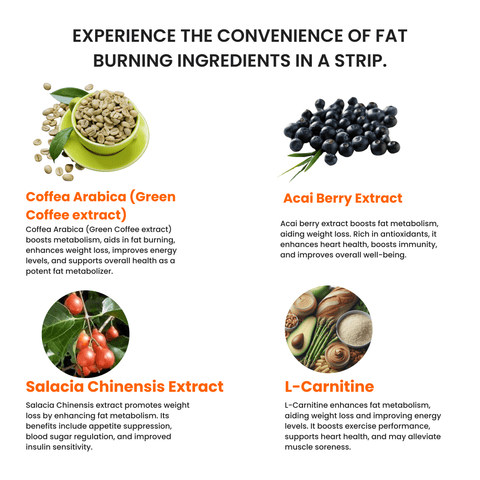Sleep problems during pregnancy are common, with 77% of pregnant women reporting sleep issues such as insomnia and disrupted sleep patterns.
Melatonin supplements are often used to improve sleep, but their safety during pregnancy is uncertain. In this blog, we will explore the safety and potential risks of taking melatonin while pregnant, including the importance of consulting a healthcare professional and the potential benefits and risks of melatonin supplementation.
Sleep Problems During Pregnancy
Sleep deprivation can have significant consequences for both the mother and the baby. Insomnia, in particular, is prevalent during late pregnancy, affecting an estimated 75% of women.
This lack of sleep can impact maternal mental health and outcomes for both the mother and child. As a result, many pregnant women seek assistance in falling and staying asleep.
Melatonin Supplements and Pregnancy
Melatonin supplements are often marketed as sleep aids, but their safety during pregnancy is uncertain. While there is some evidence suggesting potential benefits of melatonin for both pregnant individuals and their babies, there is a lack of comprehensive research on its safety and efficacy during pregnancy. Most healthcare professionals do not recommend melatonin supplements for pregnant women due to this uncertainty.
Reasons Why Melatonin May Not Be Safe for Pregnant Women
No Standard Dosage
Melatonin supplements do not have a standard dosage, which can lead to varying levels of melatonin in the body. This lack of standardization makes it difficult to determine the optimal dosage for pregnant women, who may have different needs than other populations.
Unregulated Supplements
Melatonin supplements are not regulated by the FDA, which means that the quality and safety of these supplements can vary significantly. Some supplements may contain ingredients not listed or different levels of melatonin than what is claimed on the label.
Limited Human Studies
The exclusion of pregnant women from clinical studies has limited our understanding of how many medications and supplements, including melatonin, may impact parents-to-be and their children. While some studies have shown promise, others have been inconclusive, and at least one animal trial indicated that extra melatonin negatively impacted maternal weight, birth weight, and baby mortality.
When Melatonin Might Be Safe During Pregnancy
While melatonin supplements are generally not recommended for healthy pregnant women, there are certain instances where healthcare professionals may recommend them. For example, some professionals suggest melatonin supplements for older women trying to become pregnant, for pregnant women with preeclampsia, or for women with endometriosis[2]. In these cases, the benefits of melatonin supplementation may outweigh the risks.
How to Use Melatonin Safely During Pregnancy
If you are considering taking melatonin supplements during pregnancy, it is crucial to consult with your healthcare provider first. They can help ensure that you are not exposing yourself to anything that could potentially harm you or your unborn baby. Additionally, your healthcare provider can consider your health history and other medications and supplements to account for all potential problems[2].
Example: A Pregnant Woman's Experience with Melatonin
Sarah, a 30-year-old expecting her first child, was experiencing severe insomnia during her third trimester. Her healthcare provider recommended that she try melatonin supplements to help her sleep. Sarah was hesitant at first, but after discussing the potential risks and benefits with her provider, she decided to give it a try. She started with a low dose of 1 milligram and gradually increased it as needed. Sarah found that the melatonin helped her fall asleep faster and stay asleep longer. However, she also experienced some side effects, including drowsiness and headaches. Sarah's healthcare provider monitored her closely and adjusted her dosage as needed to ensure her safety and the safety of her baby[2].
Conclusion
While melatonin supplements can be effective in improving sleep, their safety during pregnancy is uncertain. Pregnant women should consult with their healthcare provider before taking melatonin supplements, as they may not be suitable for everyone. Additionally, the potential benefits and risks of melatonin supplementation should be carefully considered. By understanding the complexities of melatonin and pregnancy, women can make informed decisions about their health and the health of their babies.
References
[1] Amerisleep. (n.d.). Is it Safe to Take Melatonin While Pregnant? Retrieved from <https://amerisleep.com/blog/is-it-safe-to-take-melatonin-while-pregnant/>
[2] Sleep Foundation. (2024, March 1). Can You Take Melatonin While Pregnant? Retrieved from <https://www.sleepfoundation.org/melatonin/pregnancy/>
[3] NCBI. (2021, November 1). Melatonin use during pregnancy and lactation: A scoping review. Retrieved from <https://www.ncbi.nlm.nih.gov/pmc/articles/PMC9169489/>
[4] Healthline. (2018, April 20). Melatonin and Pregnancy: Risks, Benefits, How to Use, and More. Retrieved from <https://www.healthline.com/health/pregnancy/melatonin-pregnancy>
Citations:
[1] https://amerisleep.com/blog/is-it-safe-to-take-melatonin-while-pregnant/
[2] https://www.sleepfoundation.org/melatonin/pregnancy
[3] https://www.ncbi.nlm.nih.gov/pmc/articles/PMC9169489/
[4] https://www.healthline.com/health/pregnancy/melatonin-pregnancy
[5] https://www.medicalnewstoday.com/articles/melatonin-pregnancy














Comments (0)
There are no comments for this article. Be the first one to leave a message!